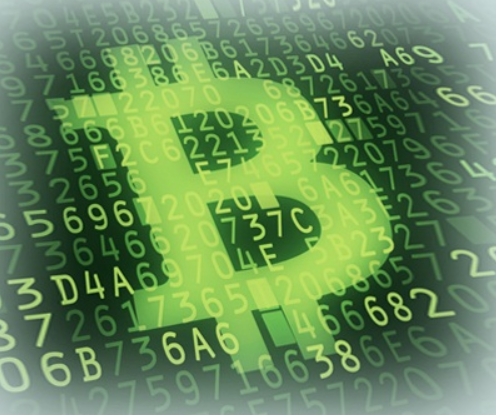Banking, finance, and taxes
Why Western Union and PayPal Better Watch Out for Bitcoin
Published:
Bitcoin remains a mystery to much of the public, even while it has fought for its life as a currency and method of payment. Now a new angle has surfaced, with Fitch Ratings issuing a report on the virtual currency. Fitch’s take is that Bitcoin remains small in comparison to payment processors and currencies. The report actually goes much further than that, because we now know how much Bitcoin is being used each and every day — and Western Union Co. (NYSE: WU) and eBay Inc. (NASDAQ: EBAY) better not take their eyes off of Bitcoin.
Fitch maintains that despite Bitcoin’s growing use as a payment system and the attention in the marketplace, the virtual currency is small relative to both traditional payment processors and global currencies. As a reminder, there are currently about 12.1 million bitcoins in circulation versus a maximum of 21 million bitcoins.
Another issue identifies exactly how widespread Bitcoin use is. Fitch indicates that total Bitcoin transactions averaged some $68 million per day in February 2014. That is up more than tenfold when compared to February 2013.
By comparison, Western Union Co. (NYSE: WU) averaged $225 million in transaction volumes per day during 2013. PayPal, under eBay Inc. (NASDAQ: EBAY), was shown to average some $492 million in its transaction volumes per day during 2013. Wednesday’s report showed that Bitcoin’s transaction volumes are less significant compared to the major credit card companies.
Fitch said:
From a trading perspective, Bitcoin transaction volumes relative to the stock of outstanding Bitcoins resemble those of equity securities. There was about $68 million in average daily transaction volume in Bitcoin in February 2014 relative to its $6.75 billion money supply, or approximately 1% of total market capitalization was traded per day. Over the same period, an analysis of a sample of the largest U.S. equity securities shows that daily trading volumes were approximately 0.6% of total market capitalization.
Fitch further said that Bitcoin’s market capitalization is less than 1% of total U.S. dollars, and is closer in size to smaller currencies such as the Guatemalan quetzal. Those figures may be true, but the daily transaction volume is impressive when you consider the other companies out there.
The impetus of the Fitch report is that Bitcoin remains at risk, and the subtitle of the “Sizing Up Bitcoin” report is “Why Is the Future of Bitcoin Uncertain?” Fitch says:
Bitcoin has received significant attention because of its dramatic price appreciation, use in illicit transactions, the closure of the once-largest Bitcoin exchange, Mt. Gox, and recent tax guidance on virtual currencies issued by the IRS. The future of Bitcoin is difficult to project. Its utility may remain limited to those users that desire a degree of anonymity, or it could grow to become a globally accepted alternative to conventional money or an investment product.
What probably should stand out the most is not how small Bitcoin is versus real currencies, but that this $68 million in daily transaction volumes was taking place during a period of severe uncertainty, and that Bitcoin was represented independently by Fitch as being right at 30% of Western Union’s daily transactions and almost 14% of PayPal’s transaction volumes per day.
One caveat with Fitch’s figures is that they may change and fluctuate wildly through time. And for what it’s worth, Warren Buffett does not like Bitcoin. Still, the Fitch report signals that Bitcoin’s adoption is currently standing up to much uncertainty, even as regulations and taxation begin to take form.
The last few years made people forget how much banks and CD’s can pay. Meanwhile, interest rates have spiked and many can afford to pay you much more, but most are keeping yields low and hoping you won’t notice.
But there is good news. To win qualified customers, some accounts are paying almost 10x the national average! That’s an incredible way to keep your money safe and earn more at the same time. Our top pick for high yield savings accounts includes other benefits as well. You can earn up to 3.80% with a Checking & Savings Account today Sign up and get up to $300 with direct deposit. No account fees. FDIC Insured.
Click here to see how much more you could be earning on your savings today. It takes just a few minutes to open an account to make your money work for you.
Thank you for reading! Have some feedback for us?
Contact the 24/7 Wall St. editorial team.